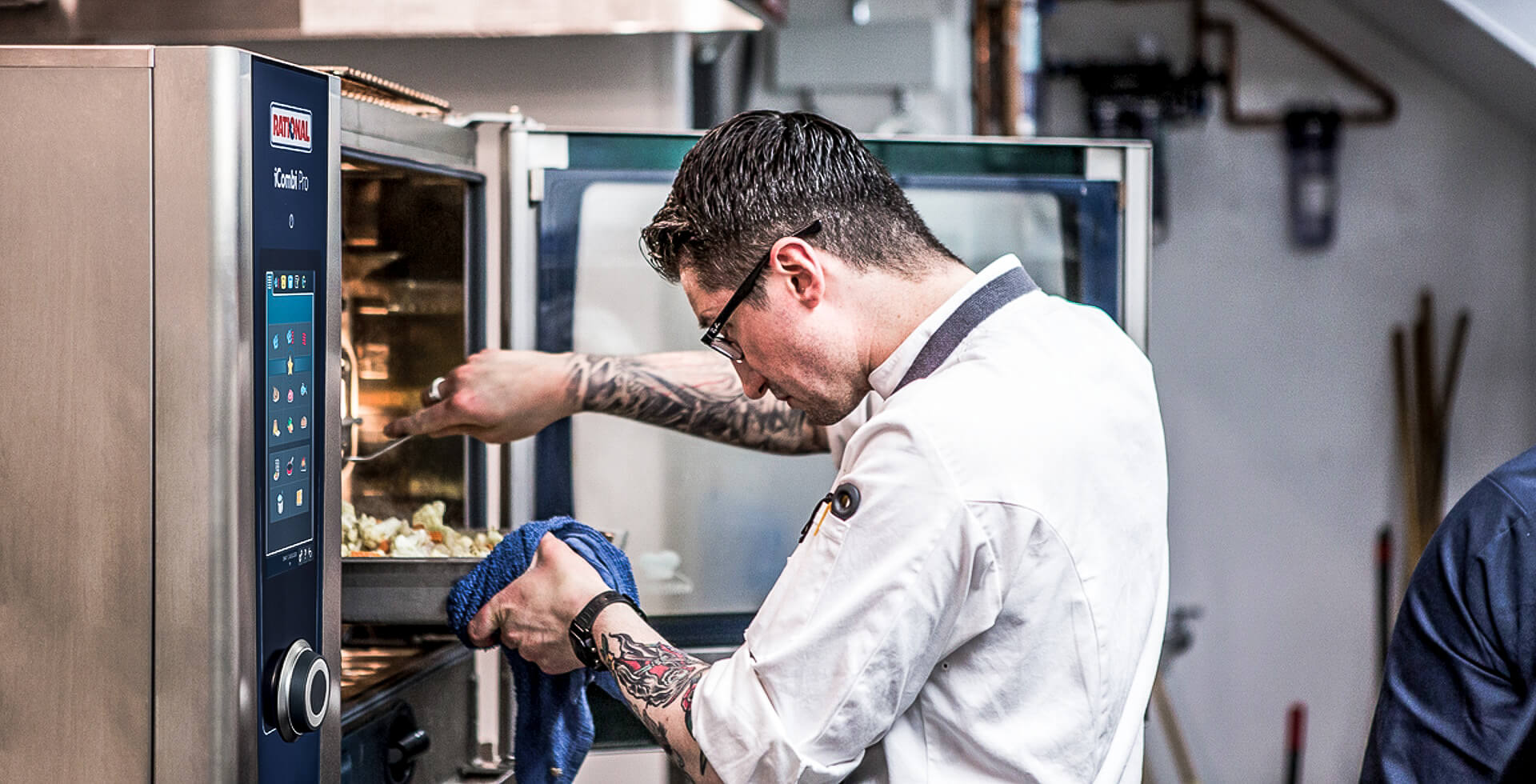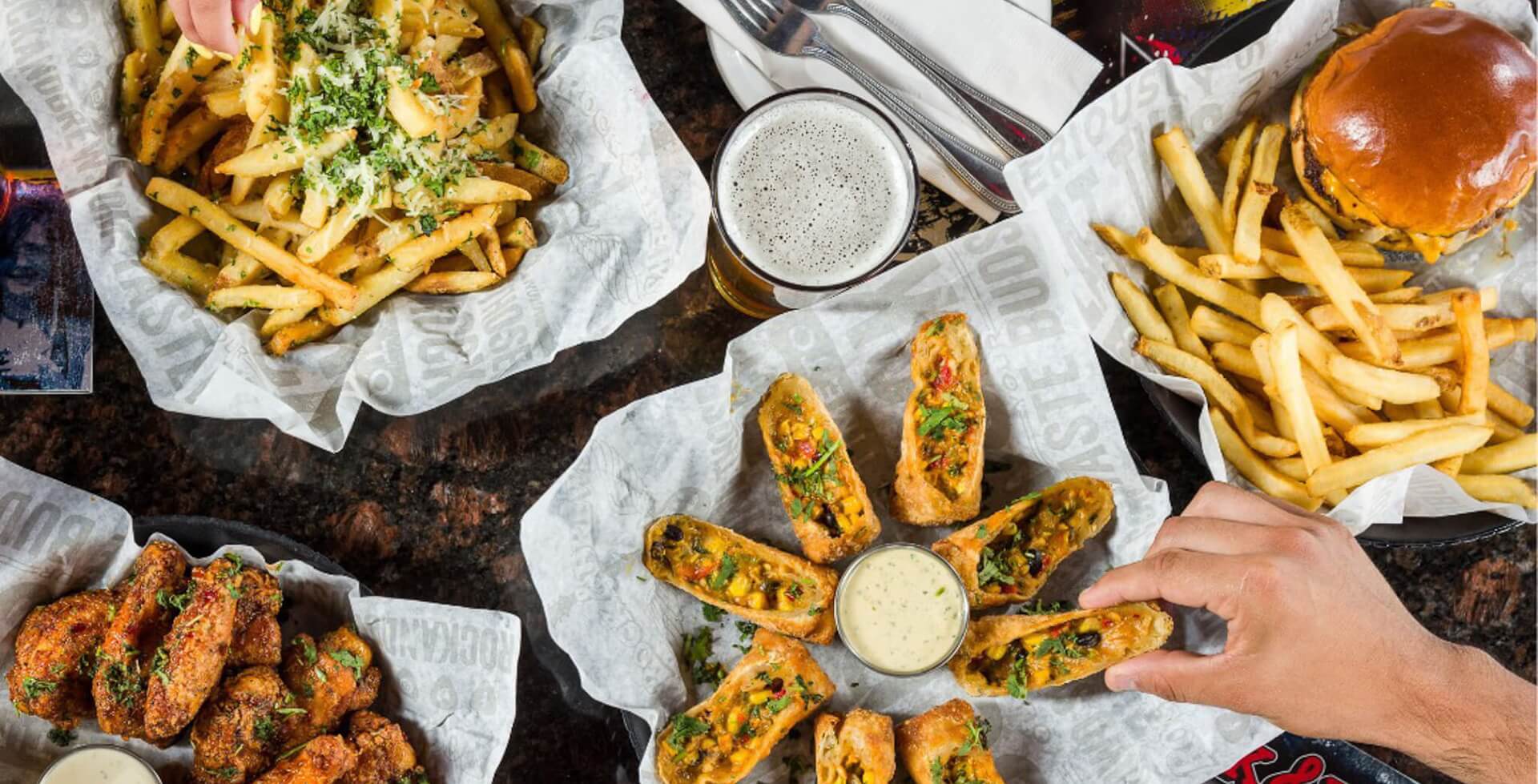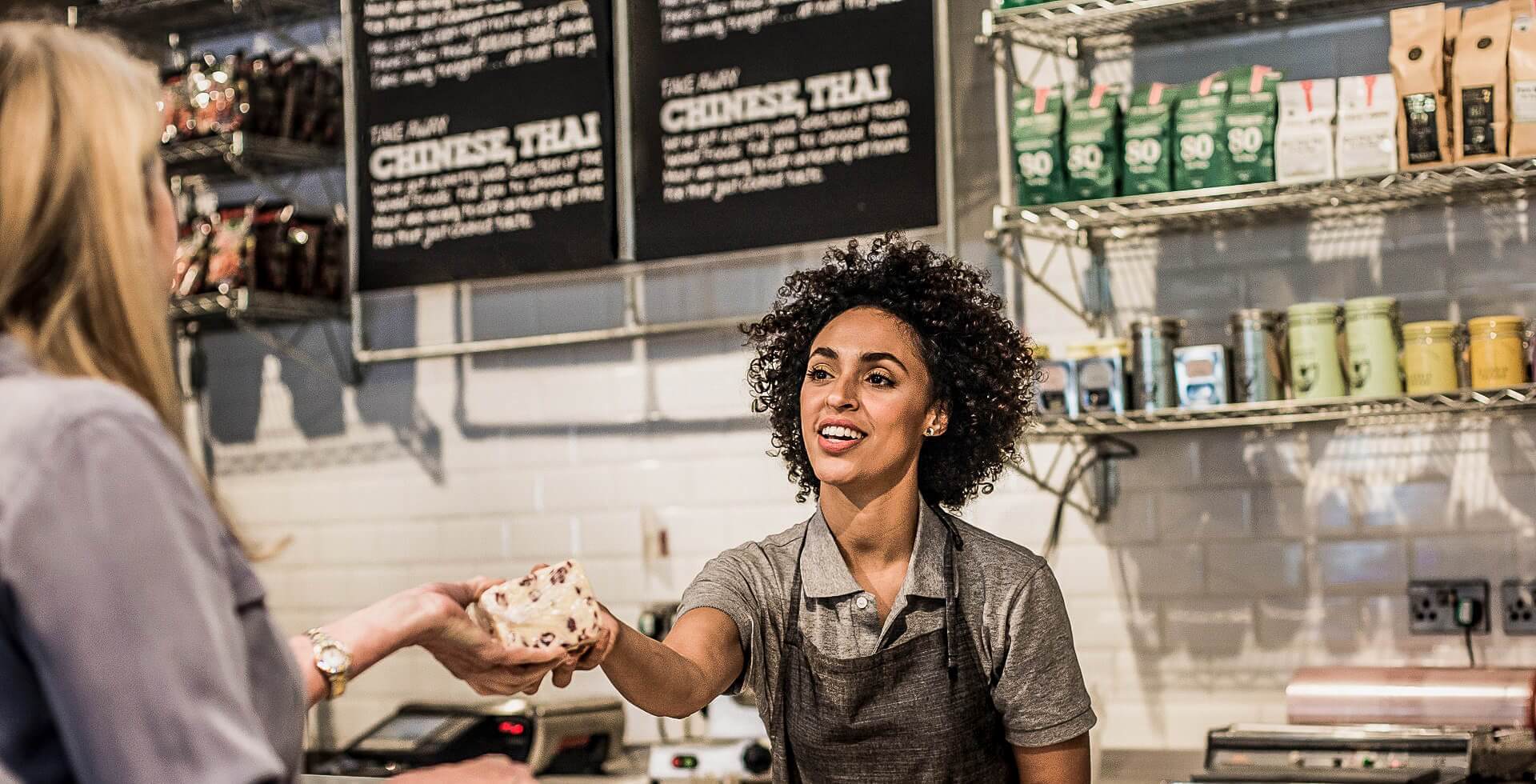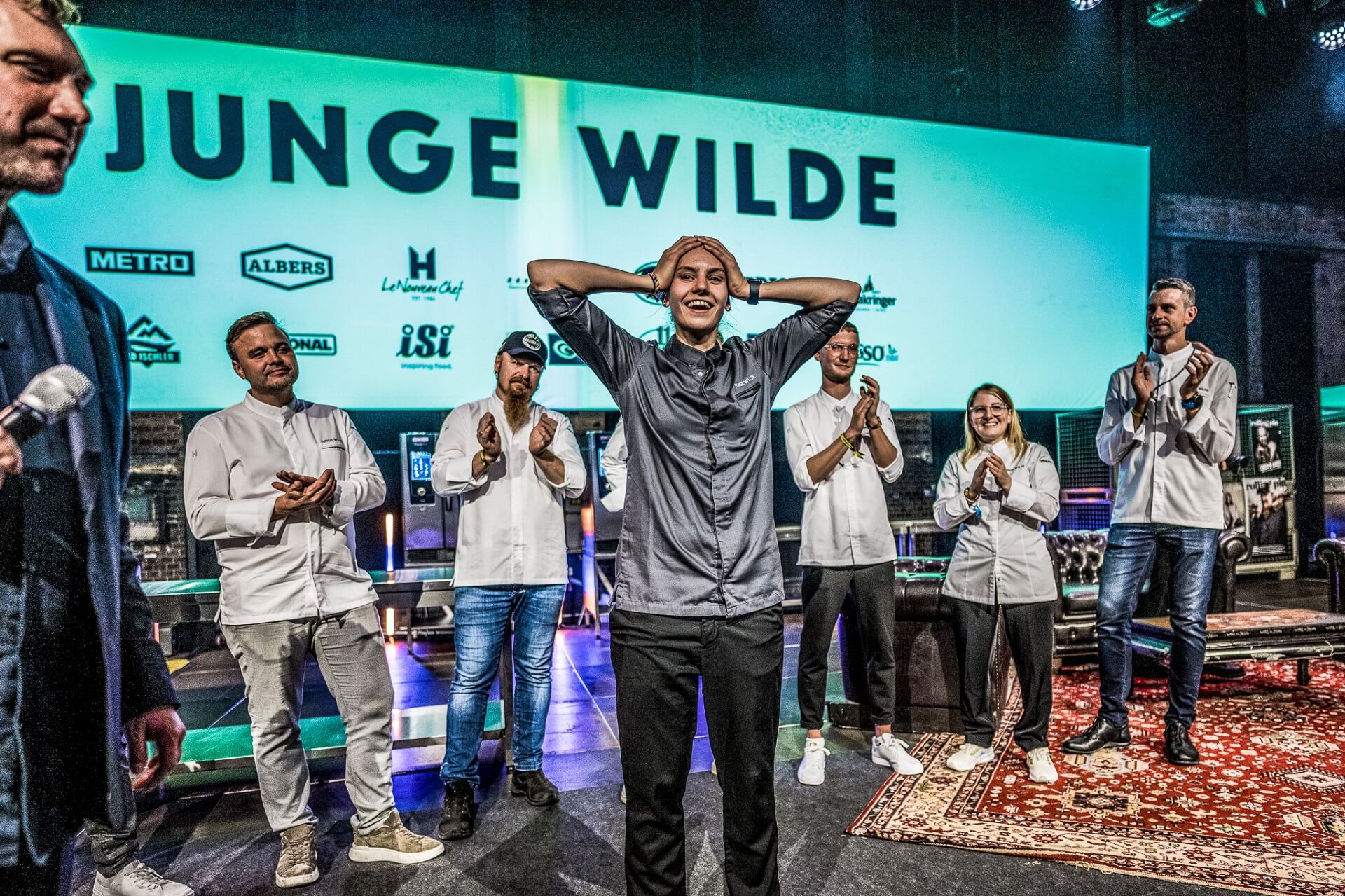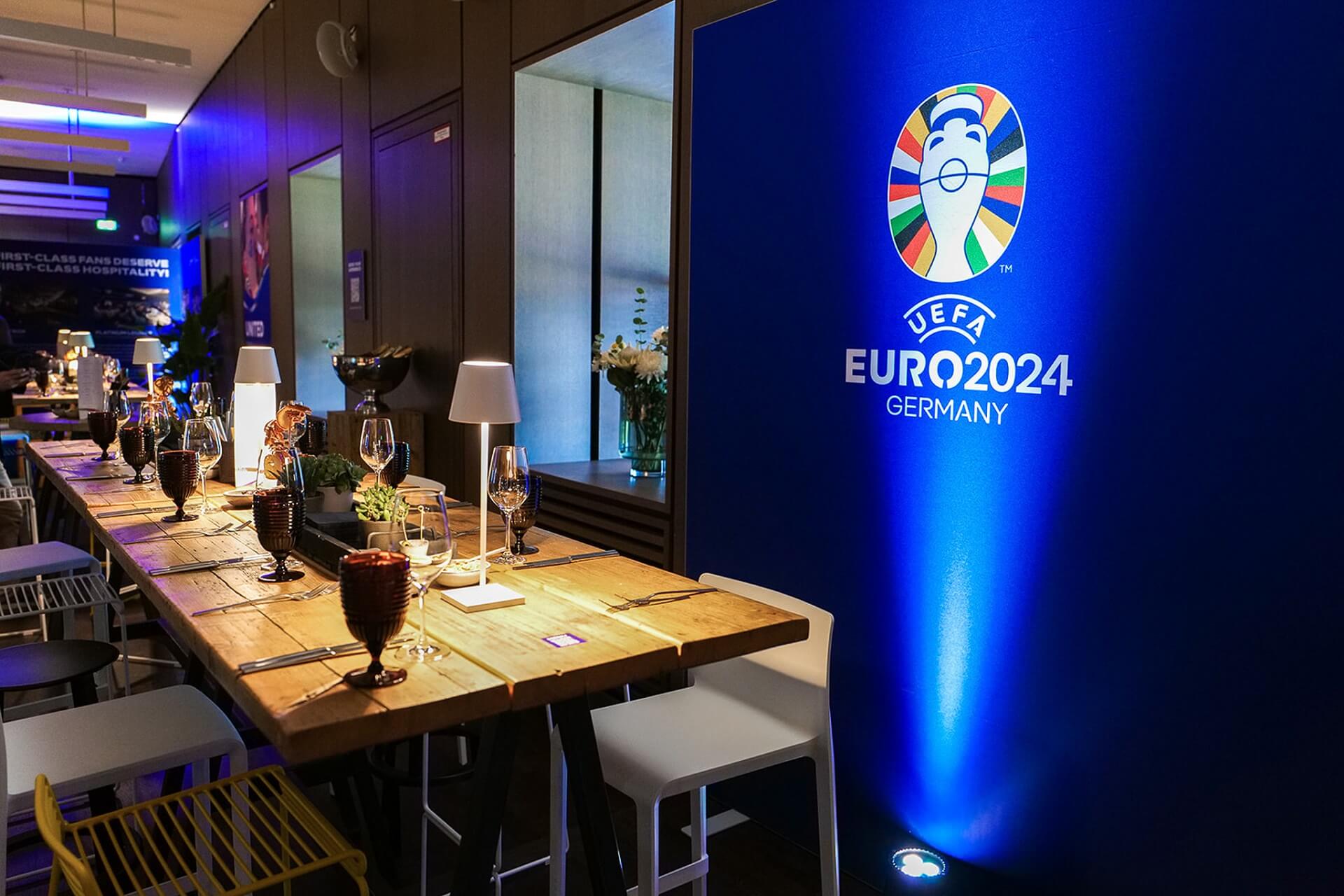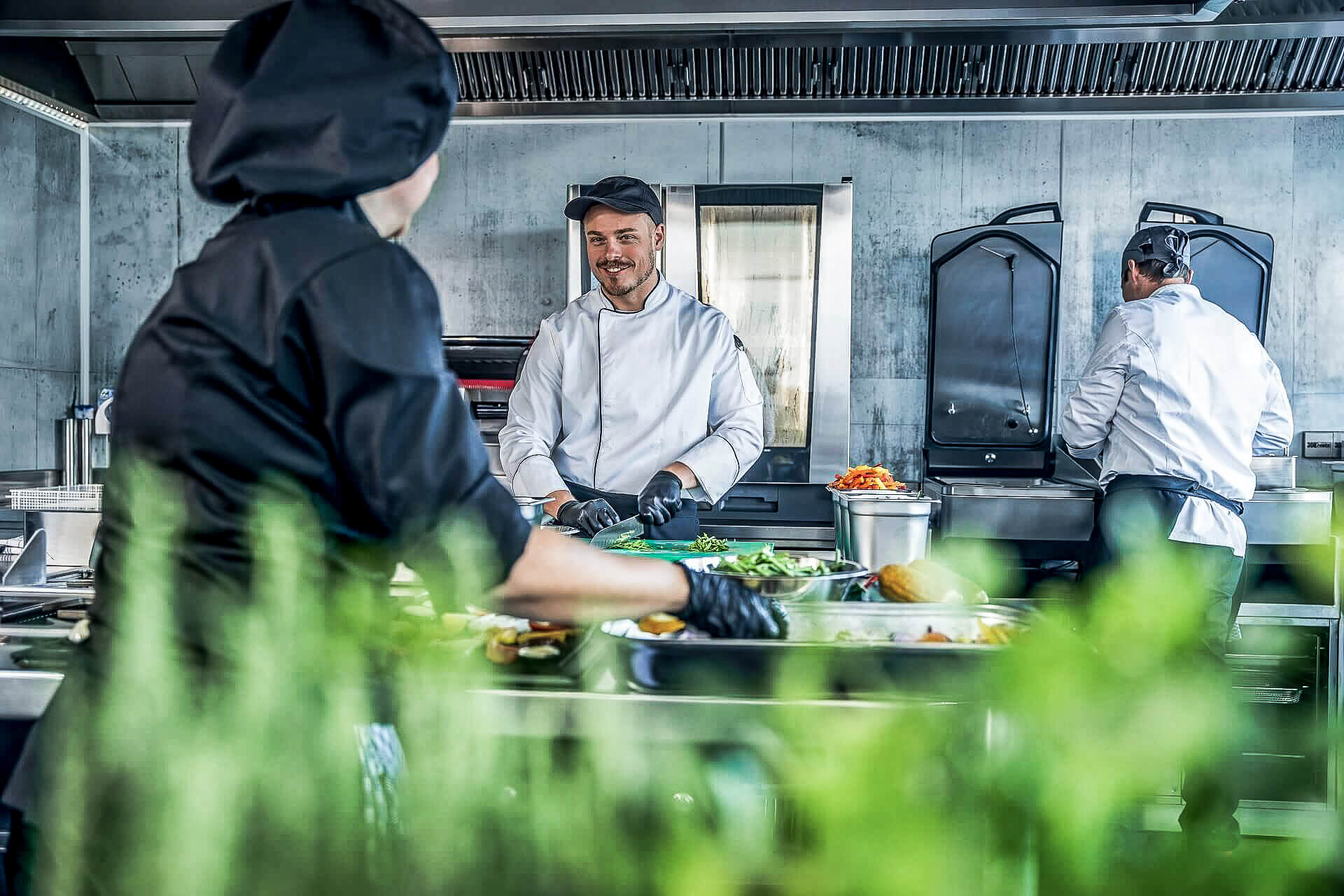Everything has changed, including food and gastronomy, and not only as long as Covid-19 still has us in its grasp. It would be better to get used to the new normal and do something with it. That was the exciting message conveyed at the lively, youthful HolyTisch convention, which brought experts from all over the world together at a digital table in September, thanks in part to the support it received from Rational AG and KTCHNrebel. The goal was to discover what the future of food looks like, and how restaurateurs and the food industry can seize this future and make the world a better place in the process.
Can we feed ten billion people without adversely affecting the climate? This question was addressed by none other than the well-known filmmaker Valentin Thun (“Taste the Waste”), who HolyTisch managed to enlist as opening keynote speaker. He believes using more chemicals in agriculture cannot be the solution. Thun relies on the skills of smallscale farmers, who consistently achieve higher yields than large-scale industry thanks to regionally adapted cultivation methods, as a study revealed. Thun reminded us that only 30% of the world’s grain harvest is intended for direct consumption in the first place. “We are growing fruit for organic fuel, and that is completely absurd!” In addition, the fact that our food is responsible for 40% of global warming also calls for a rethink, according to the expert.
Food and the climate – this was the topic that permeated the entire conference. Keynote speaker Manuel Klarmann, CEO of Eaternity, a company that provides environmental calculations for food, warned of the dangers of climate-induced migration. He also mentioned food production as an important climate factor, as well as a growing influence; this is especially true in view of an increasing population and the fact that land available for cultivation is declining due to climate change. However, the message was that we can still make a difference. Climate friendly eating is possible, and Eaternity highlighted the carbon footprint of an increasing number of foods. This enables restaurateurs and guests to become involved in protecting the climate – and do so with pleasure!
Food saver Daniel “Dan” Anthes reminded us that even the food we throw away adversely affects our climate. Dan emphasized the magnitude of this issue by pointing out that the 1.3 billion tons of food thrown out worldwide every year is the third largest greenhouse gas emission after China and the USA. He also has plenty of ideas on how to change this, for example with his Knärzje, a zero-waste beer made from bread scraps, or the food truck where he sells good stuff made from recovered food. “There is no such thing as waste, it’s all still edible food that just had bad luck,” he stressed. He added that there is already enough food for 12 billion people. “But we need an ordoliberal framework,” he said, directing his statement at policymakers.
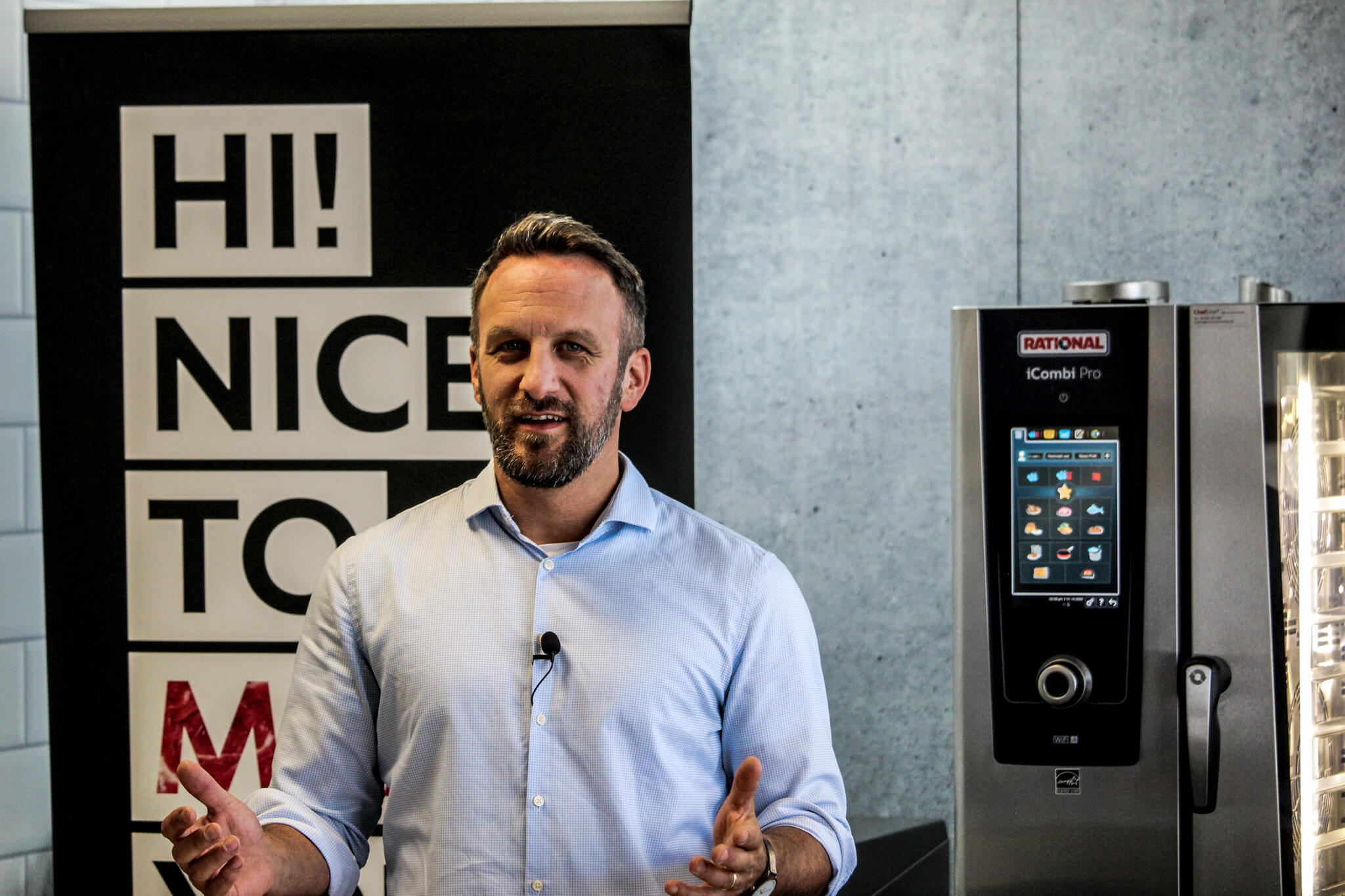
Image: Food service expert Sascha Barby, Rational AG
Food service expert Sascha Barby of Rational impressively summed up what all this will mean for the gastronomy of the next several decades. The sociological changes brought about by the Y and Z generation’s influences, combined with rapidly accelerating climate change, create a provocative mix that can be turned into innovative concepts. With foresight and empathy, these concepts can be transformed into something that will also appeal to guests in the future and can even offer remedies for the increasing levels of loneliness caused by the pandemic.
Dylan Watson-Brawn and Spencer Christenson of the cult location Ernst Berlin also revealed what the future gastronomy will look like. Other speakers included Jasmin Suchy from the zero waste restaurant FREA, Julius Brantner, who is causing a stir with his bread making business, and gastronome, farmer and author Franz Keller, who is opening up new dimensions of sustainable pleasure. Input for the to-go business was provided by packaging experts such as Dr. Tim Breker, who presented his deposit-free reusable system for the gastronomy industry.
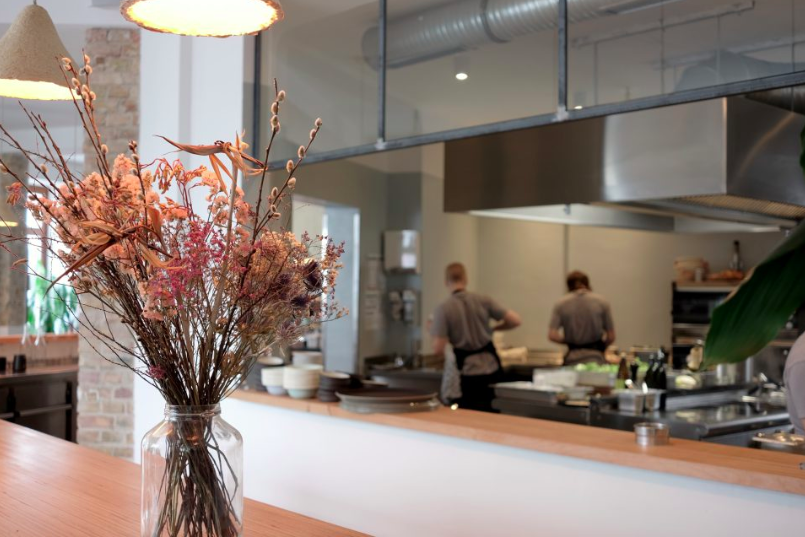
Image: Justyna Fedec FREA photo
In addition, participants learned how closely the respective food culture is linked to the entire culture, tradition and identity and what role modern female entrepreneurs play in this context. Ethnology professor Rich Stepp illustrated how the way we eat majorly contributes to our cultural identity. For example, he explained why the grain-eating North Chinese tend to be individualists, while rice cultivation in the South tends to promote a sense of community. Food is dynamic, and always brings new opportunities, no matter what happens. For those who still had their doubts, Luciana Bianchi from the hotel, restaurant and gastro-social project MUYU in the Galapagos won them over. She demonstrated how to keep a business going with a sense of joy and positivity even if you don’t have any guests at all! “There are no tourists, people don’t have money to spare. We have to reinvent ourselves,” said the amiable restaurateur in the end. With a crowdfunding campaign backing her up, she steadfastly champions the families she supports, is particularly committed to promoting independence for women and is now focusing more on growing and processing food. “Covid is like group therapy,” she said. “I believe in humanity. I’m a romantic at heart!” Her motto? “The most important thing now is to survive, stay healthy and not go crazy.”
Following the sessions, the participants could discuss the topics with the speakers to their heart’s content. HolyTisch made it clear that when you combine commitment with joy and know-how, productive exchange is possible – Corona doesn’t change a thing!




